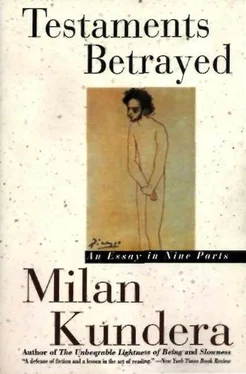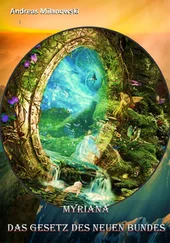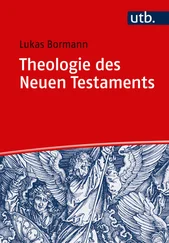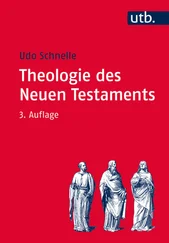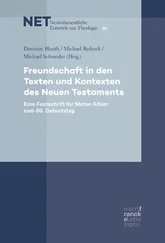Not everything written on Kafka is Kafkology. How then to define Kafkology? By a tautology: Kafkology is discourse for Kafkologizing Kafka. For replacing Kafka with the Kafkologized Kafka:
1) Following Brod's example, Kafkology examines Kafka's books not in the large context of literary history (the history of the European novel) but almost exclusively in the microcontext of biography. In their monograph, Boisdeffre and Alberes cite Proust rejecting biographical explication of art, but only to say that Kafka requires exception to that rule, as his books are "not separable from his person. Whether he is called Josef K., Rohan, Samsa, the Surveyor, Bendemann, Josefine the Singer, the Hunger Artist, or the Trapeze Artist, the hero of his books is none other than Kafka himself." Biography is the principal key for under-
standing the meaning of the work. Worse: the only meaning of the work is as a key for understanding the biography.
2) Following Brod's example, in the hands of the Kafkologists Kafka's biography becomes hagiography; such as the unforgettable bombast with which Roman Karst ended his talk at the famous 1963 conference on Kafka in Czechoslovakia: "Franz Kafka lived and suffered for us!" Various kinds of hagiography: religious; secular-Kafka, martyr to his solitude; leftist-Kafka "assiduously" attending anarchist meetings and "very interested in the 1917 Revolution" (according to a mythomaniacal assertion frequently cited but never verified). To every church its apocrypha: Conversations with Kafka by Gustav Janouch. To every saint a sacrificial gesture: Kafka's wish to have his work destroyed.
3) Following Brod's example, Kafkology systematically dislodges Kafka from the domain of aesthetics: either as a "religious thinker" or else, on the left, as a protester against art, whose "ideal library would include only books by engineers or mechanics, and declaratory jurists" (in the book by Deleuze and Guattari). Kafkology is tireless in examining his connections to Kierkegaard, to Nietzsche, to the theologians, but ignores the novelists and poets. Even Camus, in his essay, discusses Kafka in terms one would use not for a novelist but for a philosopher. His private writings are treated the same way as his novels, but with a marked preference for the former: taking at random the Kafka essay Roger Garaudy wrote while he was still a Marxist: fifty-four times he quotes Kafka's letters, Kafka's diaries forty-five times; the Janouch Conversations thirty-five times; the stories twenty times; The Trial five times, The Castle four times, Amerika not once.
4) Following Brod's example, Kafkology ignores the existence of modern art; as though Kafka did not belong to the generation of the great innovators- Stravinsky, Webern, Bartok, Apollinaire, Musil, Joyce, Picasso, Braque-all born, like him, between 1880 and 1883. When, in the 1950s, someone proposed the notion of his kinship with Beckett, Brod immediately protested: Saint Carta has nothing to do with such decadence!
5) Kafkology is not literary criticism (it does not examine the value of the work: the previously unknown aspects of existence that the work reveals, the aesthetic innovations by which it affected the evolution of the art, etc.); Kafkology is an exegesis. As such, it can see only allegories in Kafka's novels. They are religious (Brod: the Castle = the grace of God; the surveyor = the new Parsifal in quest of the divine; etc., etc.); they are psychoanalytical, existentialistic, Marxist (the surveyor = a symbol of revolution, because he undertakes land redistribution); they are political (Orson Welles's The Trial); Kafkology does not look to Kafka's novels for the real world transformed by an immense imagination; rather, it decodes religious messages, it deciphers philosophical parables.
"Garta was a saint of our time, a veritable saint." But can a saint go to brothels? When Brod published Kafka's diaries he censored them somewhat; he deleted
not only the allusions to whores but anything else touching on sex. Kafkology has always expressed doubts about its subject's virility, and it delights in discussing the martyrdom of his impotence. Thus Kafka long ago became the patron saint of the neurotic, the depressive, the anorexic, the feeble; the patron saint of the twisted, the precieuses ridicules, and the hysterical (in the Orson Welles film, K. howls hysterically, whereas Kafka's novels are the least hysterical in the entire history of literature).
Biographers know nothing about the intimate sex lives of their own wives, but they think they know all about Stendhal's or Faulkner's. About Kafka's I would dare say nothing but this: the (not very easy) erotic life of his time had little resemblance to ours: girls in those days did not make love before marriage; for a bachelor, that left only two possibilities: married women of good family, or easy women of the lower classes: shopgirls, maids, and of course prostitutes.
The imagination of Brod's novels drew on the first source; whence their kind of eroticism-rapturous, romantic (involving dramatic cuckoldries, suicides, pathological jealousies), and asexual: "Women are wrong to believe a good man cares only about physical possession. That is merely a symbol and is by far less important than this feeling: the woman loves me, and so she is entirely well-disposed toward me. All of man's love seeks to win woman's good will and kindness" (The Enchanted Kingdom of Love).
The erotic imagination in Kafka's novels, on the contrary, draws almost exclusively on the other source: "I walked past the brothel as though it were the house of a beloved" (diary, 1910, sentence censored by Brod).
Masterful as they were at analyzing all the strategies of love, nineteenth-century novels left sex and the sexual act itself hidden. In the first decades of our century, sex emerged from the mists of romantic passion. Kafka was one of the first (certainly along with Joyce) to uncover it in his novels. He unveiled sex not as the playing field for a small circle of libertines (in eighteenth-century style) but as a commonplace, fundamental reality in everyone's life. Kafka unveiled the existential aspects of sex: sex in conflict with love; the strangeness of the other as a condition, a requirement, of sex; the ambiguous nature of sex: those aspects that are exciting and simultaneously repugnant; its terrible triviality, which in no way lessens its frightening power, etc.
Brod was a romantic. By contrast, at the root of Kafka's novels I believe I discern a profound antiro-manticism; it shows up everywhere: in the way Kafka sees society as well as in the way he constructs a sentence; but its origin may lie in Kafka's vision of sex.
Young Karl Rossmann (the protagonist of Amerika) is put out of the parental home and sent to America because of his unfortunate sexual mishap with a housemaid, who "had seduced him and got herself a child by him." Before the coition: "'Karl, oh my Karl!' she exclaimed… while he could see nothing at all and felt uncomfortable amid all the warm bedding that she had apparently piled on especially for his sake…" Then she "shook him, listened to his
heartbeat, offered him her chest so that he could listen to hers the same way." Next she "groped between his legs in so disgusting a manner that Karl's head and neck came thrashing out from among the pillows."But then she '"'pushed her belly against him several times-he felt she was a part of himself and that may be why he was overcome by a terrible need."
This minor copulation is the cause of everything to follow in the novel. Realizing that our destiny is determined by something utterly trivial is depressing. But any revelation of some unexpected triviality is a source of comedy as well. Post coitum omne animal triste. Kafka was the first to describe the comic side of that sadness.
Читать дальше
